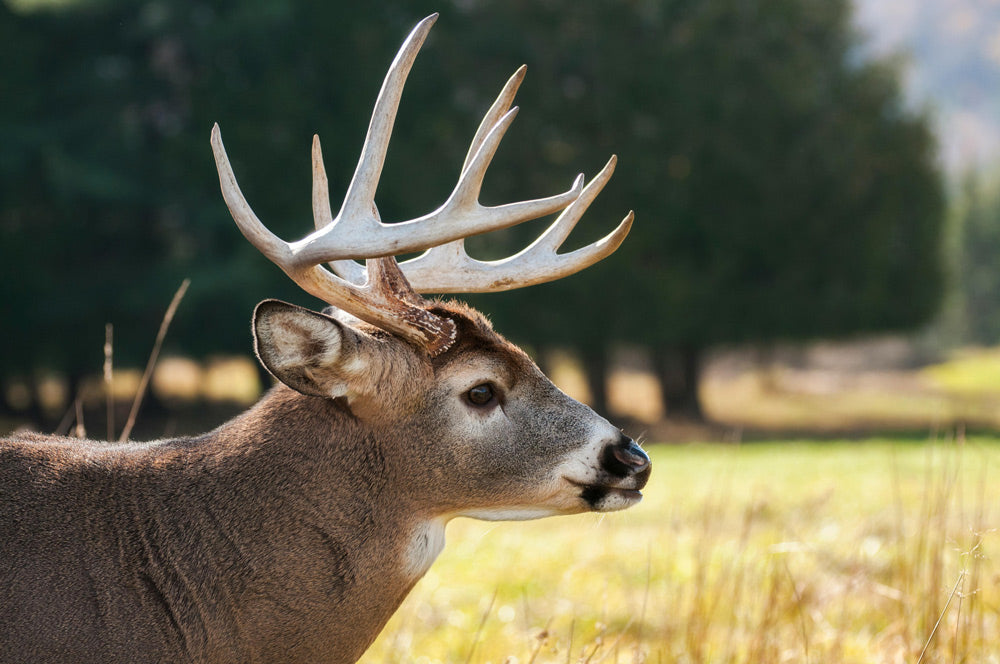Louisiana Big Buck Contest Fuels Arkansas Man’s Alleged Hunting Crime
Matthew Russell
An Arkansas man faces serious charges after allegedly entering an illegally killed deer into a hunting contest in Louisiana. Authorities say Andrew Riels, 27, from Crossett, Arkansas, shot a 15-point buck under illegal conditions in his home state before submitting it to a Louisiana-based competition. The Louisiana Department of Wildlife and Fisheries (LDWF) cited Riels for hunting contest fraud and violations of interstate commerce laws.

Louisiana taxpayer dollars currently support hunting contests.
Illegal Kill Under Cover of Darkness
On September 8, LDWF officials say Riels took the deer outside legal hunting hours near Crossett, Arkansas. According to a tip from the Arkansas Game and Fish Commission (AGFC), he quickly entered the buck into the Simmons Sporting Goods Big Buck Contest in Bastrop, Louisiana, later that day. The AGFC cited Riels in October for illegally harvesting the deer, with LDWF following up on November 1 with additional charges of fraud and interstate violations in Louisiana.
Bastrop, just across the state line from Arkansas, hosts the Big Buck Contest, which offers high stakes. Prizes include a $10,000 shopping spree and a Can-Am 4-wheeler, according to the contest website. Officials allege that Riels entered the competition to capitalize on these lucrative rewards, despite having taken the deer outside the bounds of legal hunting hours.

These contests offer prizes for killing large game animals.
Charges and Penalties
The consequences Riels faces are steep. In Louisiana, hunting contest fraud alone can bring a fine of up to $3,000 and a jail sentence of up to one year. Violations of interstate commerce laws add further fines ranging between $900 and $950, with an additional potential 120-day jail term, according to the Louisiana Department of Wildlife and Fisheries. These fines reflect the serious nature of hunting fraud, which undermines fair competition and state conservation laws.
The AGFC, which initially tipped off the LDWF, is also pursuing charges within Arkansas for Riels’ actions. Officials in both states have made it clear that cross-border fraud and illegal hunting will be met with significant penalties.
Hunting contests can encourage unethical hunting practices.
Cooperation Between State Agencies
Riels’ case is notable not just for the charges he faces but for the interstate cooperation that led to his arrest. The AGFC’s communication with the LDWF highlights the close partnerships between state wildlife agencies in enforcing hunting laws and regulating competitions. Officials say such cooperation is essential in deterring interstate wildlife crime. Sgt. Wendell Weeks, Lt. James Hagan, Sgt. Ray Ellerbe, and Senior Agent Stephen LaCombe of the LDWF conducted the investigation and issued the citations, according to KTAL/KMSS.
The High Stakes of Hunting Contests
Hunting competitions offer substantial rewards that can sometimes tempt participants to cross ethical and legal lines. The Simmons Big Buck Contest attracts hunters from around the region with its hefty prizes, a draw that may have motivated Riels to allegedly cut corners. But Louisiana authorities, committed to preserving wildlife and ensuring fairness, show no leniency toward violators. An LDWF representative emphasized the importance of adhering to both state and federal regulations, according to NOLA.com.
The Simmons contest, which remains active through the hunting season, serves as a reminder of the broader responsibilities hunters bear. Wildlife authorities stress that legal hunting supports conservation efforts, helping to protect animal populations and maintain balanced ecosystems. LDWF officials, as noted in reports from KNOE, say hunting fraud not only disrupts fair competition but also compromises these broader conservation goals.

Critics argue these contests put trophies over conservation values.
.
Consequences Beyond Fines and Jail Time
If convicted, Riels may face more than just fines and jail time. Legal experts say convictions for wildlife-related fraud can lead to a long-term loss of hunting privileges and possible restrictions on firearms ownership. This potential consequence can act as a significant deterrent for would-be violators, as noted by Chron.com. With wildlife laws extending across state lines, penalties may also affect Riels' ability to participate in hunts or contests outside Louisiana and Arkansas.
The ongoing case highlights the vigilance of wildlife enforcement agencies in tackling fraud and protecting the integrity of hunting traditions. As for Riels, his attempt to enter the Big Buck Contest may ultimately result in a costly lesson on the limits of hunting law.


